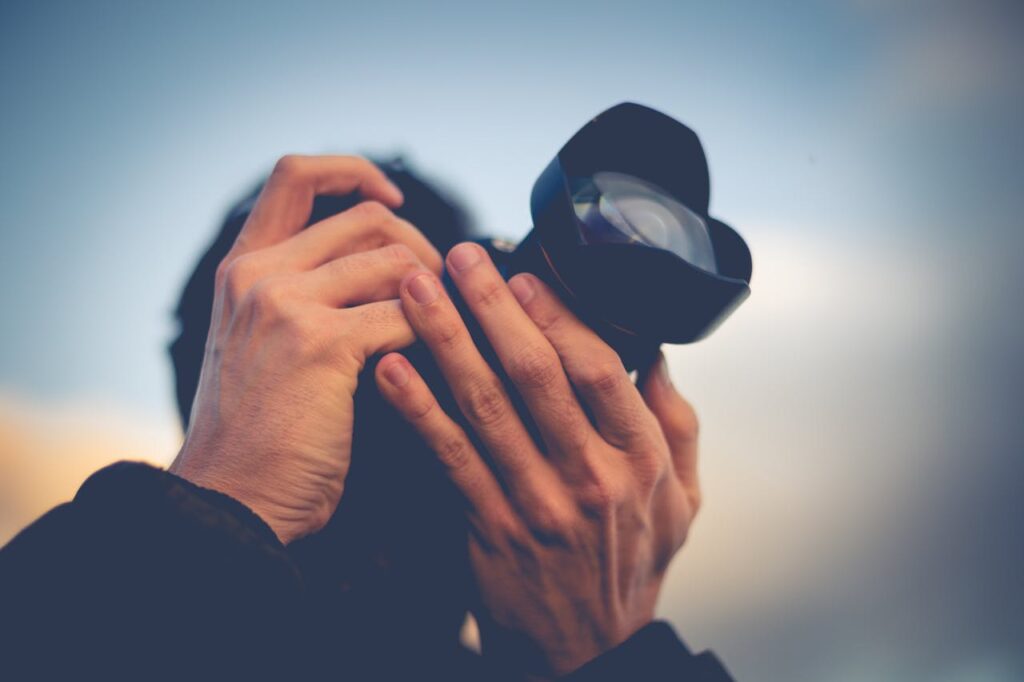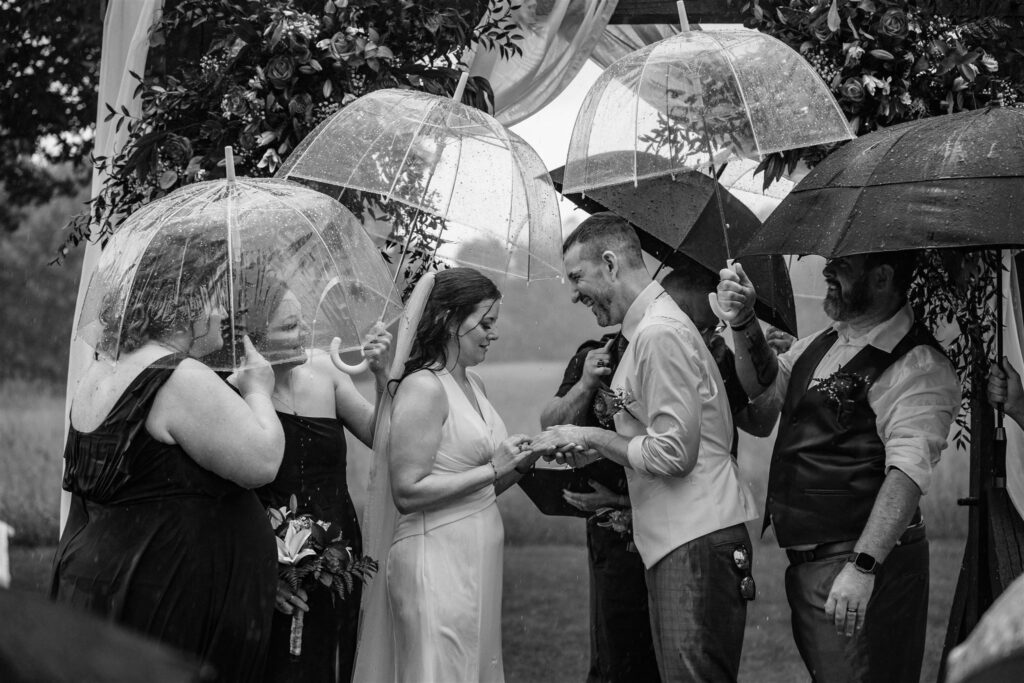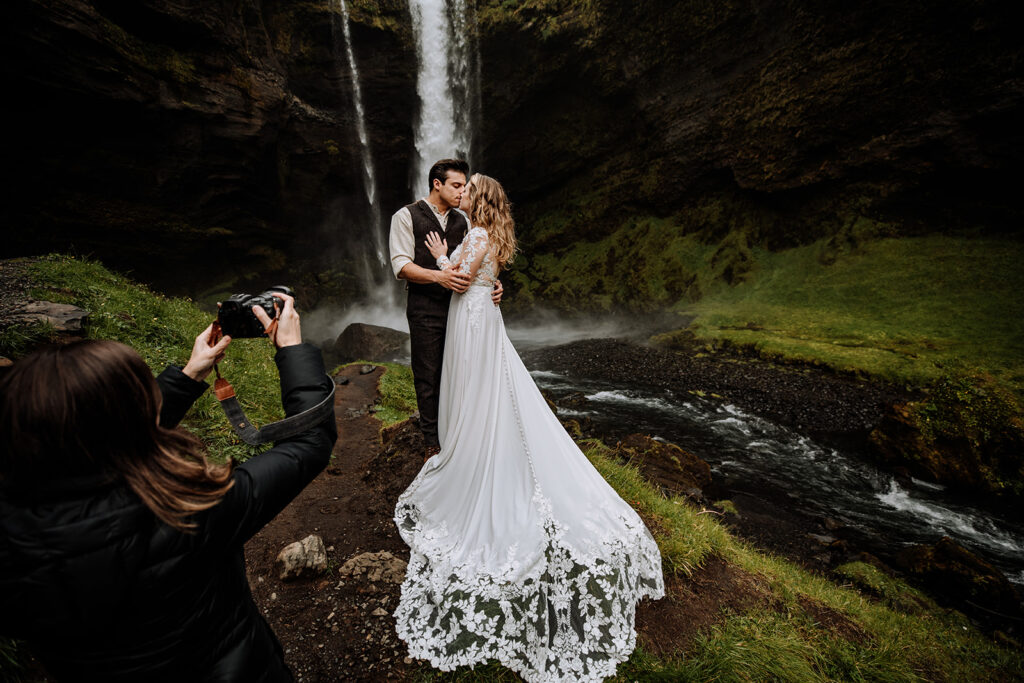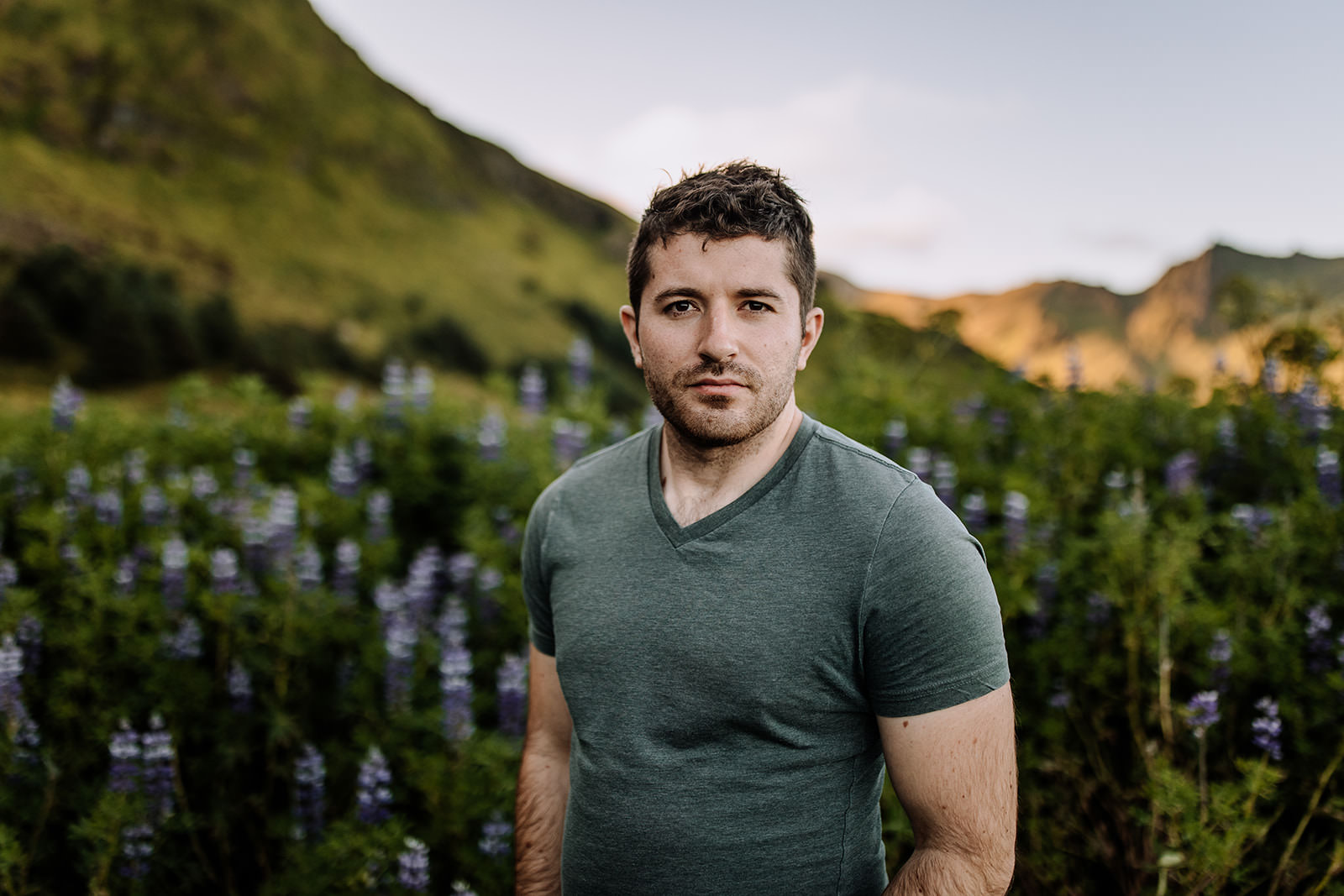We're a team of wedding, elopement and portrait photographers who put community over competition. We provide tips and resources for Photographers looking to up-level their businesses.
We're here to help When you join The Photography Business Academy
Battling Imposter Syndrome in Photography: A Personal and Practical Guide
Imposter syndrome in photography is something almost every creative has faced at some point.
It’s that nagging feeling that your work isn’t good enough, that you aren’t worthy of charging what you do, or worse—that you’re a fraud.
No one wants to feel this way, but it happens…
And it’s more common than you might think…especially among photographers building their careers.
In this blog, I want to explore what imposter syndrome really is, how it manifests in photographers and business owners, and what you can do to overcome it!
I’ll be sharing some personal experiences and insight, as well as looking to address this topic with a little more nuance given my psych background 🙂

Exploring Imposter Syndrome in Photography – What It Is & What Causes It
At its core, imposter syndrome is a confidence issue.
It’s a feeling of self-doubt that makes you question your skills, your business, and your worth…
You might look at other photographers and feel like they’ve got it all figured out…while you’re still fumbling with lighting or struggling to pose clients.
You might get this sense others are “booked solid” for the next 2 years…while your struggling to get leads in the door.
This is a sensation that is especially prevalent in the creative field because the work is so subjective, and so often deeply emotional and personal.
Just consider for a moment that as photographers, one of the unique things about choosing this as a career path or opening a business in this industry, is that we often serve our clients differently than most other businesses (and that’s something really special about it!). We become more personally invested in our clients than say a lawn care service provider does for our lawn, right?
As a result of all these things, it’s easy to compare yourself to others and come up short in your own mind.
The reality is that imposter syndrome can affect anyone—from beginners to seasoned pros.
I’ve felt it myself, particularly in the early years. Learning new gear, handling unpredictable lighting, and managing client expectations were all triggers (and many other things too). I felt like I had to fake it till I made it, and while that helped me get by, it didn’t erase the self-doubt…
The Depths of Doubt
We’ll touch on this more later into this article, but at it’s core – imposter syndrome is not inherently a bad thing.
Yes, it can be uncomfortable.
It can manifest as anxiety, make you question your every move, and even lead some people into a depression spiral.
But – it’s in this recognition of discomfort that we can grow.
I would argue it’s natural for people to feel some sense of imposter syndrome at points as they look to grow as a photographer and business owner.
You should question if what you are doing is good enough (sometimes). This questioning can lead to making positive changes, getting more experience, connecting with more people, and more.
The problem of imposter syndrome comes into play when we decide (whether intentionally or not) to live in that headspace.
Speaking from experience, I’ve struggled throughout my life with anxiety and depression (which themselves are the result of complex PTSD) – and at times in my pursuit of business, “imposter syndrome” would enter the scene, then cause these other things I’d often feel to flare up worse and worse. If you struggle with similar things, the solution to addressing this will be more nuanced (and potentially require more professional support), but I wanted to share so you can know that whatever you are feeling – others have been there too (myself included).
The beautiful thing is that imposter syndrome can be overcome and leveraged to be an asset to how you work.
Over time, with more experience, those feelings began to fade—but they may never disappear completely.
How Imposter Syndrome Shows Up for Photographers
For photographers, imposter syndrome can appear in subtle and not-so-subtle ways.
Some examples include…
- Being unsure about how to use your photography gear
- Low confidence because you lack certain skills (like limited posing skills)
- Uncertainty about pricing your services
- Anxiety before every shoot
- Constant self-doubt about whether clients actually like your work
- Feeling inferior when comparing yourself to others on social media
Can you think of any examples of your own?
Sometimes, these feelings stem from real skill gaps.
I would challenge you to really think about this (in particular) – because many things that trigger imposter syndrome can be overcome with more practice and experience.
But often, imposter syndrome for photographers takes hold not because of something you’re (genuinely) missing, but it’s the result of comparing your behind-the-scenes with someone else’s highlight reel.
Social media can intensify this—remember that people show their best, not their struggles.

7 Tips for Addressing Imposter Syndrome as a Photographer
1. Master the Fundamentals
If you’re feeling imposter syndrome around your actual photography work, it’s often because you’re still building the necessary skills.
The solution? Practice—again and again.
- Spend time getting to know your camera gear inside and out
- Shoot in different environments and lighting scenarios
- Practice posing people and experimenting with different styles
- Improve your editing and post-processing workflows
These are all learnable skills, and with repetition, you’ll start to build confidence.
I remember the early days where I had to fake it till I made it—now, after shooting hundreds of weddings and countless portraits, many of these skills are second nature.
2. Get Clear on Your Business
Running a photography business isn’t just about taking beautiful photos (though…I do wish it was that simple!). You wear many hats:
- Marketing and attracting the right clients
- Creating an effective website and brand
- Learn new skills like SEO for photographers
- Managing client experiences
- Making confident sales
- and more…
When these areas feel uncertain, imposter syndrome has fertile ground to grow. But as I gained clarity and structure in these business areas, my confidence naturally improved.
Seeing more leads, higher sales, and more freedom with my time helped me shed a lot of the anxiety that once held me back.
3. Seek Validation (With Caution)
While self-assurance is key, external validation can help you manage imposter syndrome – especially to help it in the short term.
As we’ve been touching on, our goal is to find the root causes of what is triggering this for you, and do things to establish stronger skills so it’s less likely to repeat itself. But, if you’re having a tough time right now – finding some support can be helpful.
Some simple ways to do this:
- Ask for feedback from family & friends
- Ask clients for reviews and testimonials—especially those who had a positive experience. It helps to actually see this positive feedback, especially if it’s posted somewhere publicly like your Google Business listing.
- Seek structured feedback that’s actionable and encouraging
Be careful not to rely solely on external feedback, but use it to boost your confidence when needed. Positive reinforcement from people who’ve paid you for your work is especially powerful.
4. Find a Supportive Community
A career in photography can be isolating, especially when you’re a solo business owner.
I do have the good fortune of running my photography business with my wife, but even still we often feel a little insulated vs. having a larger community. Coming from corporate backgrounds and working on large teams, working for ourselves was a significant shift!
Finding community helps – here’s a few ways to find them:
- Join our free Shoot and Thrive Facebook group for advice and camaraderie and support
- Get even higher levels of support in our Photography Business Academy VIP community (access included with any course purchase)
- Attend local photography meetups or regional creative groups – you can find these by searching online or through FB groups
- Meet other photographers by working for them as an assistant or 2nd shooter – you can more easily find job opportunities through platforms like ShootWith.Me.
- Engage with coaching programs that provide feedback and direction
Why does finding a community help you address imposter syndrome? Well, there’s many great things that can come from it, but one of the most important is that – community gives you perspective.
You realize others are facing similar challenges and you’re not alone in your journey.
Often, others will look to life you up if you’re having a tough time.
As with many things in life, not all communities are made equal. Be mindful of who you’re putting your mental energy into, because while these communities can be great, there are some out there that can be quite toxic and have the opposite effect!
5. Consider Therapy if Needed
Sometimes, imposter syndrome stems from deeper mental health struggles like anxiety, depression, or trauma. I’ve personally dealt with these issues, and therapy has been instrumental.
This is not something I lightly add into the mix here, but I know (again from experience) that many who deal with imposter syndrome, are looking at this as one challenge amongst many.
A few tips if you are considering getting actual professional support –
- If the feelings are persistent and paralyzing, seek help from a professional. Generally, imposter syndrome is something that comes on and goes away fairly quickly. If it persists endlessly, it may be a more significant challenge.
- Learn coping mechanisms to manage stress and anxiety. Developing skills to address unwanted thoughts is valuable for many reasons, and can help manage these types of feelings for sure.
- Therapy can offer the structure and support needed to break out of unhealthy cycles.
While it took me many, many years to go to therapy – I’ve come to accept that it isn’t a weakness—it’s a powerful step toward healing and growth.
6. Reframe the Feeling
What if imposter syndrome wasn’t just a bad thing?
What if it’s a sign that you actually care?
This is the view that I have, and why I feel that imposter syndrome is, generally, something that isn’t bad (and might even argue it’s “good” in moderation). When managed well, it can be anxiety inducing, but also a big motivator to make changes (even ones that are uncomfortable) to have better results over time in many aspects of your photography, art and business.
A few things I think about –
- Use the discomfort as fuel to improve your craft and business
- Let it motivate you rather than drag you down
- Acknowledge that the same feelings can be reframed as inspiration to grow
With more confidence, I’ve learned to use these moments as turning points—to invest in my skills, business, and mindset.
7. Acknowledge Your Wins
Imposter syndrome often creeps in just as you’re making progress.
Read that again…
You don’t end up feeling like an “imposter” when you’re not doing anything, most of the time it’s the result of you taking action – but still feeling like that action wasn’t enough.
Of course you don’t feel great right after putting a ton of time and energy into revising your website (and now waiting to see results). This is just one of many examples where you’re going from a state of high excitement and motivation…to, well, not that!
I’d challenge you next time imposter syndrome comes on to take a look around and think about things that have gone well for you. These might include things like…
- Booking a higher-paying client for the first time
- Delivering a shoot in a new environment
- Achieving a new milestone in your business
Celebrate these moments instead of doubting them.
“Success is a moving goalpost” (something I say quite often) — you’ll never feel “done,” so it’s important to recognize growth as it happens.
8. Step Back from Social Media
It’s natural to compare ourselves to other people, but social media fuels comparison and ramps it up to extremes.
What you’re seeing is someone’s best moments, not their reality. Even someone who aims to be more genuine and authentic isn’t going to be live streaming 24/7.
- Consider limiting time on platforms if it heightens anxiety
- Curate your feed to follow more authentic and transparent creators be an influence on you
- Remind yourself that comparison is rarely rooted in truth
The glamorized lives you see online are often just curated snapshots that don’t show the struggles behind the scenes.
Speaking again from experience here, if you were to go through my photo business’ IG feed – you wouldn’t really know I had a tough time sleeping last night, my son refused to eat his breakfast and whined like crazy for 30 minutes, that I nervously vacuum’d around my house to help manage my anxiety…the list goes on…Instead, people generally see the snapshots from cool weddings I’ve photographed and cool places I’ve been too.
If you find social media “doomscrolling” to be particularly challenging but rely on platforms like Instagram for your marketing, it’s a great opportunity to start branching out and expanding to other marketing channels like SEO and blogging.
9. Give It Time
Experience and time are often the best antidotes to imposter syndrome for most people.
This might not always be easy to believe in the moment, but trust me (I’ve been there).
Being proactive to use your time wisely and gain the experience you need to feel more confident is huge, so do the following –
- Keep shooting, keep learning, and keep showing up
- Continue educating yourself to develop new skills to lead to increase confidence
- Accept the negative feelings (like unwanted anxiety) as part of the process, not a sign of failure
- Know that over time, confidence builds naturally through action and repetition
If you’re in this for the long haul, these feelings will fade as your skills, systems, and self-belief grow.

Is Imposter Syndrome a bad thing as a photographer?
I believe that imposter syndrome can be a bad thing, but you can also use these feelings to channel positive outcomes.
This is similar to learning about stress and anxiety back in college for my Psychology degree – there are bad forms of stress (usually what we think of when we think about “stress”), as well as good forms (called “eustress”).
We want to be proactive in dealing with the bad symptoms – the excessive negative thoughts, the guilt, the overwhelming anxiety, the crushing depressions, the constant comparison, and the like.
But – if these thoughts come on, and we’re able to quickly acknowledge them and channel them into taking actions (like going out and practicing more), this is where the feelings of imposter syndrome can be a motivating thing to commit ourselves to becoming better.
Final Thoughts
Imposter syndrome may never fully go away—and that’s not necessarily a bad thing. It can be a signal that you care deeply about your clients, your craft, and your business. That’s not a weakness—that’s a strength.
When these feelings come up, use them as an opportunity to pause, reflect, and realign with your goals. With practice, support, and intention, you’ll find that what once felt like a limitation becomes motivation.
If you need more support, join us in The Photography Business Academy where we help photographers become more meaningful and structured business owners. You don’t have to navigate this journey alone—and you are absolutely capable of thriving!

Honesty is a cornerstone of Shoot and Thrive, so we want you to know that some links in this post are affiliate links. This means we may earn a commission if you make a purchase—at no additional cost to you. We only recommend products and services we trust, have used ourselves, or have thoroughly researched based on industry feedback. Our goal is to provide solutions that genuinely help, whether they come from our direct experience or the collective knowledge of the photography community.
As photography business educators, we believe it's important for educators in this industry to be active photographers themselves. The images used throughout this website were taken through our photo studios - Hand and Arrow Photography and Marshall Scott Photography, except for stock images or if otherwise noted.
Turn Your Passion into a Thriving Business
Transform your photography business into a streamlined, profitable venture that gives you more time, freedom, and confidence.
With the Photography Business Academy, you’ll have a step-by-step guide to building the business—and life—you’ve always dreamed of. From branding to marketing, finances to client experience, we’ve got you covered.
Navigation
Shoot and Thrive is an ethically created resource for photographers needing mentorship, coaching, or business education. We believe in creating content that’s easy to digest and retain while incorporating educational best practices, so you gain clarity and confidence as a business owner.